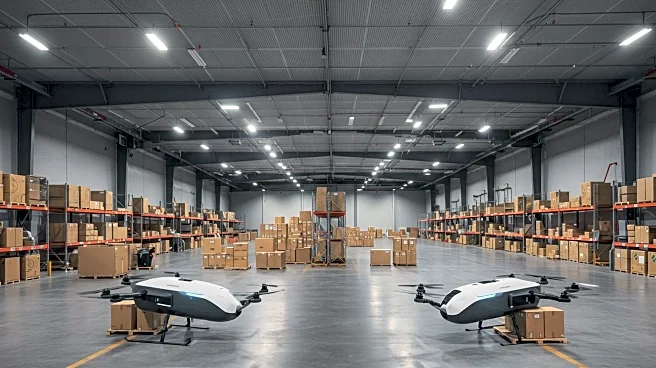What's Happening?
XPO Logistics, a leading third-party logistics provider, has secured 38 of the top 100 U.S. industrial leases, according to a report by CBRE. This achievement highlights the company's strong market position and its ability to attract significant industrial real estate deals. The report indicates that third-party logistics services providers have seen gains in the number of the largest industrial leases signed over the first half of 2025. CBRE attributes this growth to large occupiers outsourcing more of their warehousing and supply chain operations. The report also notes a decline in e-commerce leases, as these players reassess their operations after a period of substantial growth.
Why It's Important?
The increase in industrial leases by third-party logistics providers like XPO Logistics signifies a shift in the logistics and supply chain industry. Retailers and wholesalers are increasingly outsourcing distribution to reduce capital investment costs and gain flexibility in inventory management. This trend could lead to a more specialized distribution network, with logistics companies playing a crucial role in handling e-commerce and retail distribution. The growth in 3PL leases also suggests a potential increase in demand for industrial space, impacting real estate markets and potentially driving up rents.
What's Next?
CBRE projects that the market share of third-party logistics providers will continue to escalate in the coming quarters. As product distribution becomes more specialized, companies are likely to outsource more to logistics providers, which could lead to an increase in mega-warehouse leases. This trend may result in logistics companies expanding their footprints and further influencing the industrial real estate market.
Beyond the Headlines
The shift towards outsourcing distribution to third-party logistics providers raises questions about the long-term impact on traditional retail and e-commerce operations. As logistics companies become more integral to supply chain management, businesses may need to adapt their strategies to remain competitive. Additionally, the focus on technology and specialized distribution could drive innovation in logistics services, potentially reshaping the industry.











